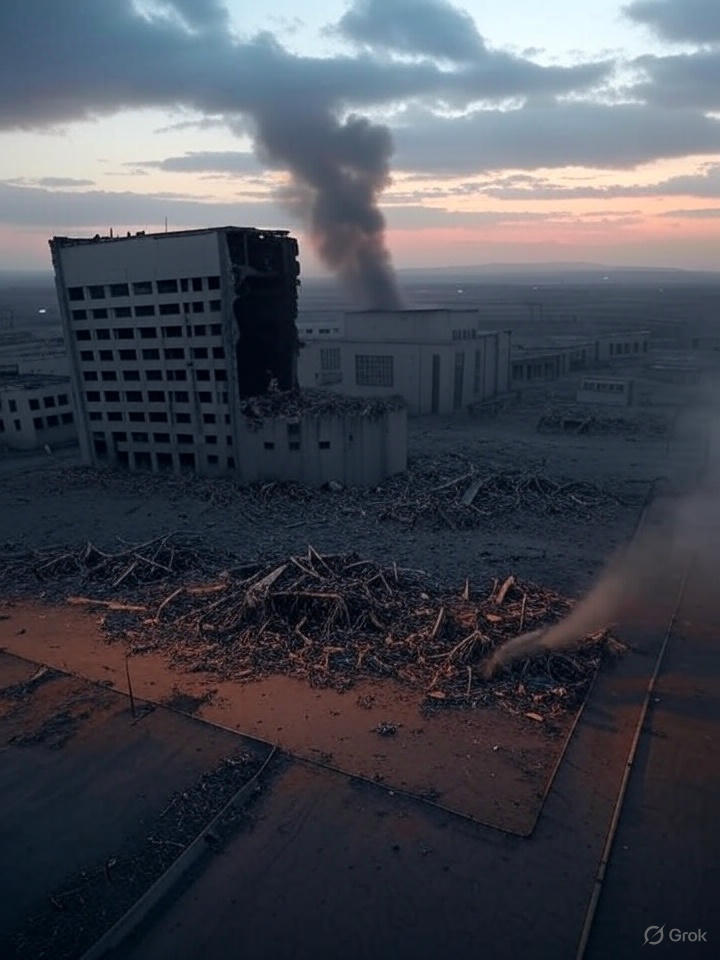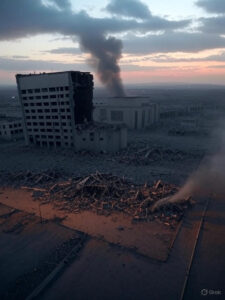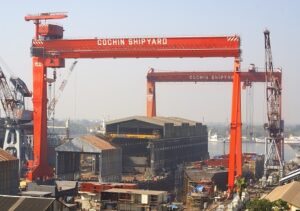
The Middle East is on edge as the Israel-Iran conflict intensifies with Israel’s bold airstrike on Iran’s Dezful airbase and Islamic Revolutionary Guard Corps (IRGC) strongholds in Ahvaz. Israeli President Isaac Herzog has made a stunning claim, asserting that Iran’s nuclear capabilities have been “completely destroyed” in coordinated strikes, including U.S. attacks on Iranian nuclear sites. This article delves into the latest developments, their implications, and Iran’s desperate bid for Russian support amid escalating tensions.
Israel’s Precision Strikes Rock Iran
Israel’s military operation targeted critical Iranian infrastructure, including the Dezful airbase, a key hub for Iran’s air force. The attack also destroyed IRGC bases in Ahvaz, a strategic stronghold for Iran’s elite military force. Reports confirm that several Iranian fighter jets were obliterated, severely hampering Iran’s air defense capabilities. These strikes follow U.S. bombings of Iran’s Fordow, Natanz, and Isfahan nuclear facilities, which have reportedly dealt a catastrophic blow to Iran’s nuclear program.
Israeli President Isaac Herzog hailed the operation, stating, “Iran’s nuclear capacity has been wiped out, delivering a significant setback to its ambitions.” The coordinated U.S.-Israel offensive signals a unified front against Iran, escalating the conflict into uncharted territory.
Iran’s Nuclear Program in Ruins
Herzog’s claim that Iran’s nuclear capabilities are “completely destroyed” underscores the scale of the damage. The targeted facilities—Fordow, Natanz, and Isfahan—were central to Iran’s uranium enrichment and nuclear research. The destruction of these sites has likely set Iran’s nuclear ambitions back by years, if not decades. While Iran has not officially responded to Herzog’s statement, the loss of its nuclear infrastructure could force Tehran into a defensive posture, reshaping the regional power dynamics.
Iran Seeks Russian Support
Reeling from the devastating strikes, Iran is turning to Russia for assistance. Iranian Foreign Minister Seyyed Abbas Araghchi is scheduled to meet Russian President Vladimir Putin in Moscow on Monday. Russia, a long-standing ally of Iran, has reaffirmed its “strong ties” with Tehran. Araghchi’s visit signals Iran’s urgent need for diplomatic and military backing to counter the U.S.-Israel offensive. However, Russia’s ability to provide meaningful support remains uncertain, given its own commitments in Ukraine and economic constraints.
Global Implications of the Conflict
The escalation has far-reaching consequences for global security and markets:
-
Oil Market Volatility: Iran, a major OPEC producer, faces potential disruptions to its oil exports, driving Brent crude prices toward $80 per barrel. This could trigger inflation in oil-importing nations like India and Europe.
-
Regional Instability: The targeting of IRGC bases risks retaliatory attacks from Iran-backed militias, further destabilizing the Middle East.
-
Geopolitical Shifts: Iran’s outreach to Russia could deepen the Russia-Iran axis, complicating U.S. and NATO strategies in the region.
Why This Matters
Israel’s strike on Dezful and Ahvaz, coupled with U.S. attacks on Iran’s nuclear sites, marks a pivotal moment in the Israel-Iran conflict. With Iran’s nuclear program in tatters and its military capabilities weakened, the balance of power in the Middle East is shifting. However, Iran’s pursuit of Russian support could escalate the conflict into a broader international crisis, drawing in global powers.
Stay tuned to The ExpertSK for updates as this volatile situation unfolds, with Iran’s response and Russia’s role likely to shape the next phase of this high-stakes confrontation.




